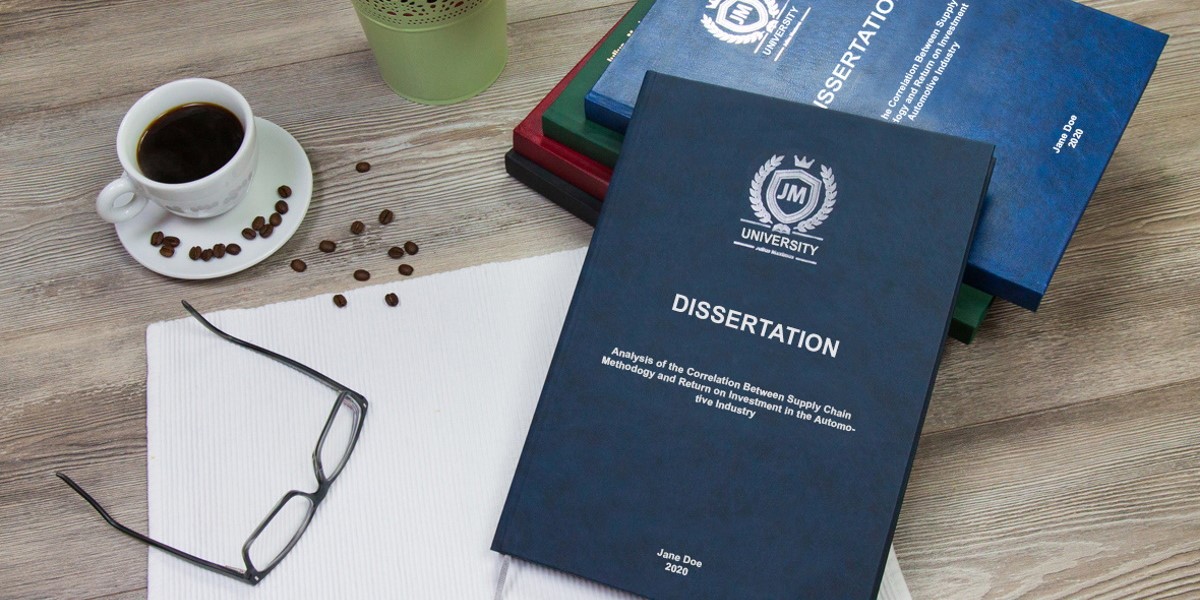Avoid These Common Mistakes in Your UK MBA Dissertation

Introduction to MBA Dissertation Challenges
Writing an MBA dissertation can be a challenging yet rewarding experience. It requires you to demonstrate not only your research and writing skills but also your ability to critically analyze a business-related issue. Many students struggle during the dissertation process due to common mistakes that can undermine the quality of their work. By understanding and avoiding these pitfalls, you can ensure that your dissertation meets the high standards expected by UK universities.
In this article, we will highlight some of the most common mistakes students make when writing their MBA dissertation and provide practical tips to help you navigate these challenges.
Mistake 1: Choosing an Overly Broad or Narrow Topic
One of the most common mistakes in dissertation writing is selecting a topic that is either too broad or too narrow. Your dissertation topic should strike a balance between being broad enough to allow for meaningful research but focused enough to remain manageable within the constraints of time and resources.
Why This is a Problem
-
Overly Broad Topics: A broad topic can result in a dissertation that lacks focus and depth. You may end up covering too many aspects, which can lead to a superficial analysis of each.
-
Overly Narrow Topics: A topic that is too narrow may leave you with insufficient resources, data, or literature to support your research, making it difficult to draw meaningful conclusions.
How to Avoid This Mistake
-
Refine your topic by asking specific questions that can be researched and analyzed in depth.
-
Make sure there is enough available data and literature to support your research.
-
Discuss your topic with your supervisor to ensure it aligns with the expectations of your program.
Mistake 2: Failing to Conduct a Thorough Literature Review
The literature review is the foundation of your dissertation. It helps you to frame your research question, identify gaps in existing research, and provide a theoretical framework for your study. Skipping or rushing through the literature review is a critical mistake.
Why This is a Problem
-
A weak literature review will lead to a poorly structured dissertation, making it difficult to build your argument and connect your findings to existing research.
-
Without a solid understanding of the literature, you may end up duplicating existing research or miss important theoretical frameworks.
How to Avoid This Mistake
-
Start your literature review early and devote enough time to thoroughly examine relevant research papers, books, and articles.
-
Summarize key findings and theories, and identify gaps in the literature that your research will address.
-
Ensure that your literature review directly informs your research question and methodology.
Mistake 3: Inadequate Research Methodology
Your research methodology outlines how you will collect and analyze data, making it one of the most important parts of your dissertation. Many students make the mistake of either using an inappropriate methodology or not explaining their chosen methods clearly.
Why This is a Problem
-
If you choose a methodology that is unsuitable for your research question, your data analysis will be ineffective and your conclusions may lack validity.
-
A poorly explained methodology leaves readers confused about how you arrived at your findings, undermining the trustworthiness of your research.
How to Avoid This Mistake
-
Select a research methodology that aligns with your dissertation topic and objectives. Whether qualitative, quantitative, or mixed methods, ensure that your approach is appropriate for your research question.
-
Provide a detailed explanation of how you will collect and analyze your data. Discuss the tools, techniques, and any potential limitations of your chosen methods.
Mistake 4: Ignoring Data Quality and Analysis
Gathering data for your MBA dissertation is not enough; you must also analyze it critically and ensure that the data you use is reliable. Students often make the mistake of focusing too much on collecting data and not enough on its analysis.
Why This is a Problem
-
Data without analysis will not contribute to your research findings. You need to draw insights from your data to address your research question.
-
Poor quality data can result in invalid conclusions, which can affect the credibility of your dissertation.
How to Avoid This Mistake
-
Ensure that you collect high-quality, reliable data. Be mindful of sample size, accuracy, and source credibility.
-
When analyzing your data, use appropriate statistical or qualitative methods to uncover meaningful patterns or insights.
-
Present your findings clearly, using tables, graphs, and charts where necessary to support your analysis.
Mistake 5: Lack of Proper Time Management
Writing a dissertation requires effective time management. Many students underestimate the time required for research, writing, and revisions, leading to rushed work that affects the quality of their dissertation.
Why This is a Problem
-
Rushed writing leads to poorly structured sections, grammar mistakes, and overlooked errors.
-
Lack of time for revisions means that you may miss critical inconsistencies, which could negatively affect your dissertation’s overall quality.
How to Avoid This Mistake
-
Create a detailed timeline for your dissertation, breaking the process down into smaller, manageable tasks.
-
Allocate time for each stage, including research, writing, analysis, and revisions.
-
Stick to your deadlines and avoid procrastination by setting aside time each day to work on your dissertation.
Mistake 6: Not Following University Guidelines
Each UK university has its own specific guidelines for formatting, referencing, and submitting dissertations. Ignoring these guidelines is a common mistake that can result in penalties or a lower grade.
Why This is a Problem
-
Failure to adhere to your university’s formatting or referencing rules could lead to your dissertation being rejected or marked down.
-
Not following guidelines can make your work appear unprofessional and careless.
How to Avoid This Mistake
-
Familiarize yourself with your university’s specific guidelines and ensure that your dissertation follows them closely.
-
Pay attention to details like margin sizes, font style, and referencing format.
-
Double-check your citations to ensure they are correct and consistent throughout the dissertation.
Mistake 7: Weak Conclusion and Recommendations
The conclusion of your dissertation is where you summarize your findings and provide recommendations based on your research. A weak conclusion can diminish the impact of your dissertation.
Why This is a Problem
-
A vague or unsupported conclusion can leave readers unclear about the significance of your research.
-
Without clear recommendations, your dissertation may lack practical value, which is an important aspect of an MBA dissertation.
How to Avoid This Mistake
-
Ensure that your conclusion succinctly summarizes your key findings and answers your research question.
-
Provide actionable recommendations based on your findings. Make sure they are well-supported by your data and analysis.
Mistake 8: Plagiarism and Poor Referencing
Plagiarism is a serious academic offense. It can occur unintentionally when students fail to correctly cite their sources. Incorrect or incomplete referencing can also reduce the credibility of your dissertation.
Why This is a Problem
-
Plagiarism can result in severe academic consequences, including failing your dissertation.
-
Incorrect referencing undermines the integrity of your work and can confuse readers about where your ideas originate.
How to Avoid This Mistake
-
Always give credit to the original authors of the research and ideas you use in your dissertation.
-
Use proper citation styles (e.g., Harvard, APA, MLA) and ensure consistency throughout your dissertation.
-
Utilize plagiarism detection tools to ensure that your work is original and properly cited.
Conclusion
Avoiding these common mistakes in your MBA dissertation is essential for producing a high-quality, well-structured, and academically rigorous paper. By choosing the right topic, conducting thorough research, using the appropriate methodology, and following your university’s guidelines, you will significantly improve the chances of success.
For students seeking further academic support with their dissertation or other assignments, Law Assignment Help UK offers tailored guidance, while Dissertation Help UK can provide specialized assistance with research and writing. For broader academic needs, Do My Assignment Online UK is a great resource for staying on track with your coursework.







